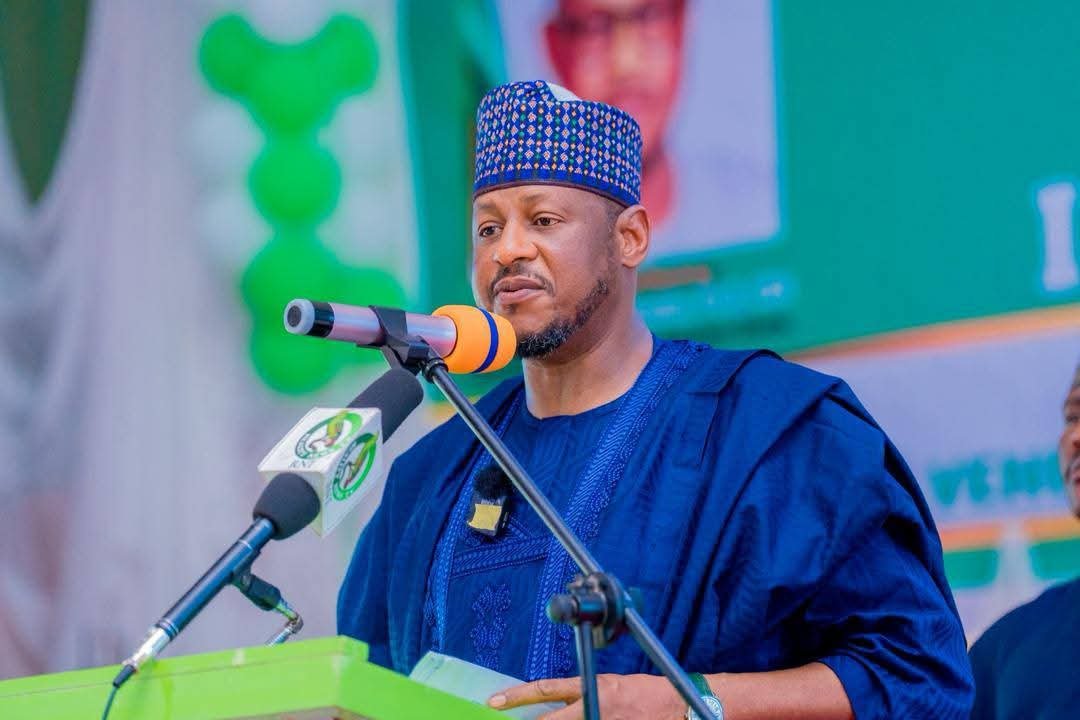Katsina Moves To Reform Almajiri, Islamiyya Education System

The Governor of Katsina State, Malam Dikko Umaru Radda, on Monday presided over a high-level one-day stakeholders’ engagement aimed at articulating ideas for the reform of the Almajiri and Islamiyya education system.
The dialogue, held at the Local Government Service Commission Conference Hall in Katsina, brought together scholars, community leaders, teachers, civil society representatives, and policymakers.
They were to design sustainable solutions for meaningful reform of the system.
In his keynote address, Governor Radda reaffirmed his administration’s resolve to transform Almajiri and Islamiyya education, describing it as one of Katsina’s most urgent priorities.
With more than 90 percent of the state’s population being Muslims, he stressed that government must work hand-in-hand with Islamic scholars and communities to strengthen the system.
The Governor emphasized that respected Ulamas will guide every step of the reform process as “true success cannot be achieved without the active involvement of our scholars”.

He announced the establishment of three new Tsangaya Model Schools, with the first set to be commissioned in Katsina before the end of the year. The schools will combine Qur’anic memorization with modern education, offering Islamiyya, English, Mathematics, and vocational training for both boys and girls.
Governor Radda also announced that henceforth, any citizen of the state who memorizes the Holy Qur’an and meets set academic criteria will be fully sponsored by the government to study professional courses such as MBBS, Nursing, and related fields.
He further revealed that Qur’an memorizers will be issued recognised certificates and equip them with modern skills to broaden their opportunities.
The Governor highlighted bold steps already taken by his administration to strengthen the system, which include the creation of the Zakkat and Waqf Commission, establishment of the Hisbah Board, and the appointment of a Special Adviser on Tsangaya and Out-of-School Children.
He also noted the ongoing improvement of Danmarna, Dan Takum, and Filin Samji cemeteries as part of broader efforts to strengthen Islamic values and community life.
He acknowledging the sacrifices of Islamic scholars and teachers, and appealed to them and other educators across the North-West to support the reforms, as government alone cannot solve the Almajiri challenge without active cooperation from communities, parents, and religious leaders.


Delivering a lead paper titled “Almajiri System of Education in Katsina State: Why Previous Reforms Failed,” Prof. Umar Alkali analyzed past shortcomings, citing weak community ownership, poor teacher welfare, inadequate child protection, and fragmented coordination.
Prof. Alkali referenced CPIMS data (April 2022) which recorded over 314,000 out-of-school children in Katsina, including 140,495 Almajiri learners, 157,884 adolescent girls, and 203,297 boys—figures that underscore the urgency of reform. He commended Katsina’s community-based initiatives and recommended a model anchored on family care, child protection, teacher training, and provision of learning kits in Hausa, Arabic, and English.
Earlier, the Statistician General of Katsina State, Prof. Saifullahi, welcomed participants and stressed the importance of accurate data in shaping reforms. He outlined three pillars for success: stronger data collection, lessons from successful models, and deeper collaboration between Ulamas, government, and civil society.
Also, Mr. Rahmah Farah, the UNICEF Chief of the Kano Field Office, commended the governor for convening the engagement and assured that UNICEF will continue its support.
Other distinguished speakers included Prof. Isah Ali Ibrahim Pantami, Malam Ibrahim Daurawa, Prof. Muhammad Mansir Sokoto, Sheikh Jabir Sani Maihula, and a representative of Sheikh Dahiru Usman Bauchi—all of whom pledged their support for the reforms.
Civil society representatives, led by Malam Bishir Usman Ruwan Godiya, commended the government’s efforts and called for harmonisation of Tahfizul schools. ALGON Vice Chairman and Chairman of Danja Local Government, Alhaji Rabo Tambaya, pledged the support of local councils and lauded the establishment of the Hisbah Board.
The stakeholders praised Governor Radda’s commitment to safeguarding Islamic values while modernising education. They pledged their full support to the state government in delivering lasting reforms that protect children, respect culture, and prepare young people for modern opportunities.
The event attracted many dignitaries including the Speaker of the Katsina State House of Assembly, Nasir Yahaya Daura, Chief Judge of the state, Justice Musa Danladi Abubakar, Tsangaya leaders, Ulamas, development partners, and other stakeholders.




